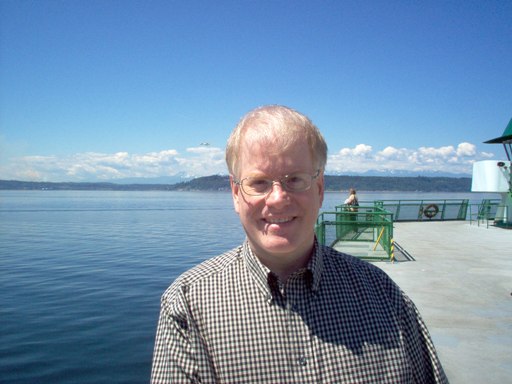"Is your pastor a theologian?"
Earl S. Johnson, Jr, in a January 2005 article in the Presbyterian Outlook, posed that question. Johnson recalls former Princeton Seminary President James McCord telling incoming students that all pastors can and should consider themselves to be theologians - if they follow the criteria and disciplines he suggests.
McCord (and Johnson) throw a net wide enough to remind us there's a bit of theologian in all of us.
I'd like to bounce off Johnson's true-enough view of who is a theologian and extend his thought:
More of us (and I'm not just talking about pastors) can and should consider ourselves to be missiologists.
Who is a missiologist? Don't let the term intimidate you. You start to become a missiologist when you want to explore how Jesus and the Bible call us into mission. Missiologists get drawn into looking at the many
nuances of mission, such as:
- What makes mission good or bad?
- What kinds of mission create dependencies?
- What kinds build capacity for the local community?
- In what ways can mission efforts collaborate by forming networks?
- What are the new successes - and new mistakes - people are making in mission?
- What is the impact of short-term mission teams on the communities they visit?
- Do we support nationals in mission or send in missionaries?
Even this short list shows that missiologists today deal with a lot of hard dilemmas and questions. A missiologist tries to understand mission in its various forms in an intentional (if not professional) and systematic manner.
Our reflection gets personal, too, evaluating our own mission involvement and measuring it up against missiological principles that we can articulate, defend and justify - or modify after feedback!
To be a missiologist, we'll want to read what other missiologists are thinking. We'll want to keep studying, keep asking questions, keep directing ourselves and our Church or agency or organization into new avenues of mission-focused thought. Along the way we'll also want to respect the main avenues of Christian orthodoxy even as we may find cause to challenge them.
To be a missiologist, we'll want to reflect on the principles of mission with seriousness no matter whether we can influence just a few or a great number of people. Current trends in mission are a Siren's call to missiologists, tantalizing us to evaluate and measure and deal with the questions that people and congregations are asking about mission.
Beyond this, some missiologists have academically advanced training (with a MA, Ph.D., Th.D, or other advanced degrees) and write and publish articles, blogs and books on mission-related topics. For these people, being a missiologist exacts an additional price of keeping up in special areas of mission interest. We push ourselves to study, and prioritize precious time for mission reflection, research, and writing.
Missiologists' deep thought and study almost naturally produce materials others can use in guiding, preparing, preaching, teaching, and training in mission.
These kind of people sense that God
definitely wants to mobilize the whole Christian Body for the missional purpose of Christ's Church. We have a conviction that God means much more than assisting a few who might become exceptionally involved in missional activities and commitment.
God's entire church is a missionary church.So...are you a missiologist? You just might be one!God will enrich you if you step into this thrilling field.
These are great times for the Church and Christian organizations to gain from people who parse the perplexities of the whole scope of mission for today's world.Dave

